Space
Sign up for our newsletter
We summarize the week's scientific breakthroughs every Thursday.
-
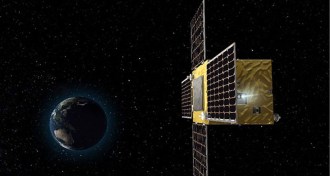 Astronomy
AstronomyJapanese satellite stalls in space and won’t reach its asteroids
Because of an engine failure, the Japanese Space Agency’s PROCYON spacecraft won’t make it to its target binary asteroid.
-
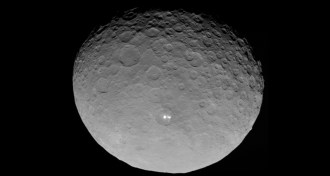 Planetary Science
Planetary ScienceBright spots on Ceres may be made of smaller patches of ice
The Dawn spacecraft took a closer look at bright patches and craters on the dwarf planet Ceres.
-
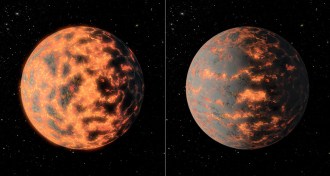 Astronomy
AstronomyErupting volcanoes may cause exoplanet’s temperature extremes
Temperatures fluctuate wildly on a nearby exoplanet, and volcanoes might be the culprit.
-
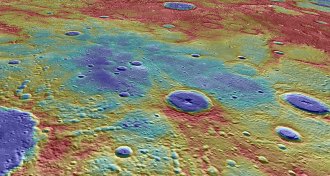 Planetary Science
Planetary ScienceOrigin date established for Mercury’s magnetic field
A 3.8-billion-year-old magnetic field on Mercury provides clues as to how the once volcanically active planet evolved.
-
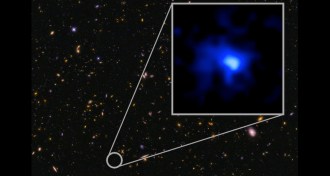 Astronomy
AstronomyAmorphous space blob takes title for most distant galaxy
The new record holder for the most distant galaxy is a blob of 8 billion stars whose light took more than 13 billion years to reach Earth.
-
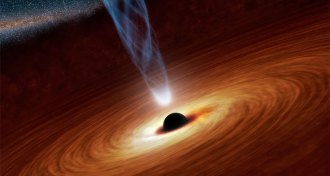 Astronomy
Astronomy‘Black Hole’ traces 100 years of a transformative idea
Implied by general relativity and proven by astronomical discoveries, black holes’ existence took decades for physicists to accept.
-
 Astronomy
AstronomyWandering planets, the smell of rain and more reader feedback
Readers consider how hard it would be to fashion Paleolithic tools, discuss what to call free-floating worlds and more.
-
 Planetary Science
Planetary ScienceHow did Earth get its water?
Earth is a wet planet that formed in a dry part of the solar system. How our planet’s water arrived may be a story of big, bullying planets and ice-filled asteroids.
-
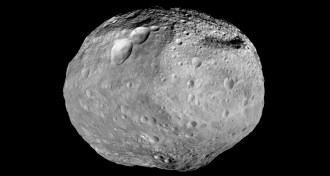 Planetary Science
Planetary ScienceExplore an asteroid with ‘Vesta Trek’
Vesta Trek lets users explore the asteroid Vesta with data from the Dawn spacecraft.
-
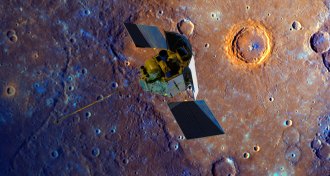 Planetary Science
Planetary ScienceMESSENGER mission ends with crash landing on Mercury
The MESSENGER mission to Mercury came to a spectacular end as the probe crashed into the planet’s surface.
-
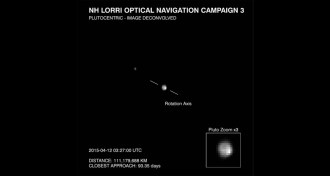 Planetary Science
Planetary SciencePluto’s landscapes come into view as New Horizons closes in
The New Horizons spacecraft sees surface markings and a possible polar cap on Pluto as it closes in for a July encounter.
-
 Astronomy
AstronomyTiny explosions add up to heat corona
Millions of mini-explosions every second on the sun could solve the riddle of why the sun’s atmosphere is so much warmer than its surface.